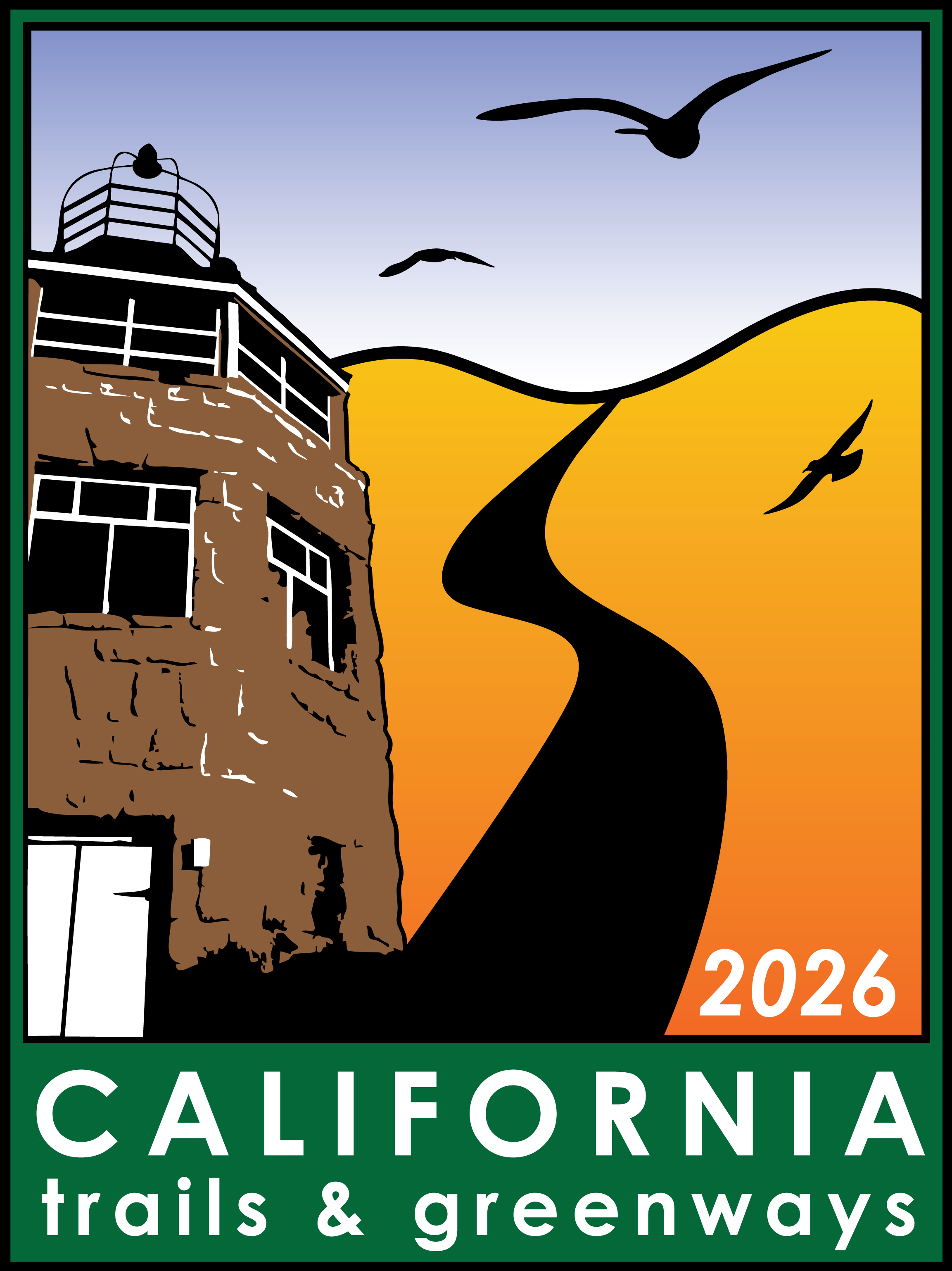
California Trails & Greenways 2026
WORKSHOP PROPOSAL FORMAT
Proposals must be received by
October 31, 2025
Workshop Title: Maximum 8 words – Please choose a title that reflects the workshop’s contents.
Workshop Description: Briefly and clearly describe the purpose and goals of the workshop.
Educational Objectives: What will attendees learn from your presentation? List specific points.
Target Audience: Will your workshop require special knowledge, skills, or expertise to be fully comprehended? If yes, specify the knowledge or skills required.
Workshop Presenters: For the individual responsible coordinating the workshop, provide name, title, affiliation, email, phone, and a 3-4 sentence biography that establishes credibility. Provide the name, title, affiliation, and biography for each individual that will have a role in the workshop presentation.
Minimum and Maximum Attendance: What is the minimum and maximum number of registrants your workshop can accommodate? Consider vehicle capacity and other limiting factors; account for drivers and presenters that will be joining the group and provide the number of workshop registrations that can be accommodated.
Itinerary: Provide a preliminary estimate of the workshop schedule, including a listing of tour locations, arrival and departure times, the names and affiliations of speakers, and the purpose and educational value of each stop. All workshops will start and end of the San Ramon Marriott. It is suggested that half-day workshops begin between 8 am – 9 am and end between noon – 1 pm, and full-day workshops begin at 8 am and end no later than 4 pm. Shorter workshops will be considered, as well as workshops taking place at the venue.
Transportation: For touring and offsite workshops, indicate if van, bus, or other transportation arrangements will be used, and whether transportation will be donated or rented.
Cost Estimate: Provide an estimate of the workshop costs that will be needed to be reimbursed. Workshop fees will be based on the costs you will incur, plus lunch, beverages, and a nominal fee to cover administrative overhead. California Trails & Greenways will reimburse workshop expenses based on the approved budget, actual attendance, and submission of a completed reimbursement form with receipts attached.
Weather Dependent: In the event of inclement weather, will the workshop need to be altered or cancelled? If plans need to be altered, briefly describe what changes would be required and what effect this may have on the learning opportunities.

California Trails & Greenways 2026
Tips for Successful Workshops
Submit proposals at:
- Set clear learning objectives
- Be clear about the teachable skills or tools you will impart during the day.
- In developing the itinerary or agenda, focus on the learning objectives and allow the project or tour sites to be the means of conveying those objectives.
- Provide a fun experience
- Let participants know in advance what clothing and other materials they will need for comfort and to get the most out of the workshop.
- Minimize the time spent in vehicles. Plan for at least specific periodic use of trails during the workshop.
- Be realistic about timing the day and avoid overscheduling.
- Keep the mood light, but professional.
- Provide good experience options for those with mobility limitations.
- Use interactive teaching techniques as part of the workshop program.
- Take participants to interesting places
- Plan stops where participants will enjoy both the environment and learning opportunity.
- If some or all the workshop will be in a classroom, use appealing visual aids.
- Closely monitor and adhere to a carefully crafted itinerary
- Know how many participants there are in your workshop and make sure you end with the same number.
- Be realistic about the timing of your itinerary. Participants will get anxious or distracted if they realize the tour is running late.
- Start and end on time – indicate clear time frames and a brief “teachable” statement for each stop or point of interest. Leave time for questions at each stop.
- Plan for possible traffic delays, alternative routes, or other possible scenarios. Do your best to plan the itinerary and route in a manner that avoids traffic delays.
- Be sure each instructor knows when they will speak, specifically what they are to cover, and how long they have at each stop. Make it clear you will have to manage the time if they do not.
- Preview the workshop and be realistic about the amount of time it will take a full group to unload, load, etc. remember that a group will take more time for each aspect of the tour than traveling on your own.
- Plan for comfort
- Provide water and snacks in the vehicle.
- Plan for restroom breaks throughout the day and let participants know during the introductory orientation when restroom breaks will be available.
- Limit the number of speakers to what is essential to cover the topic
- Avoid using “VIPs” to praise a project or organization. If an individual cannot provide specific, worthy information, they should not be presenting.
- A good presentation that provides valuable “take home” lessons will do far more to promote a project or organization than any amount of self-praise.
